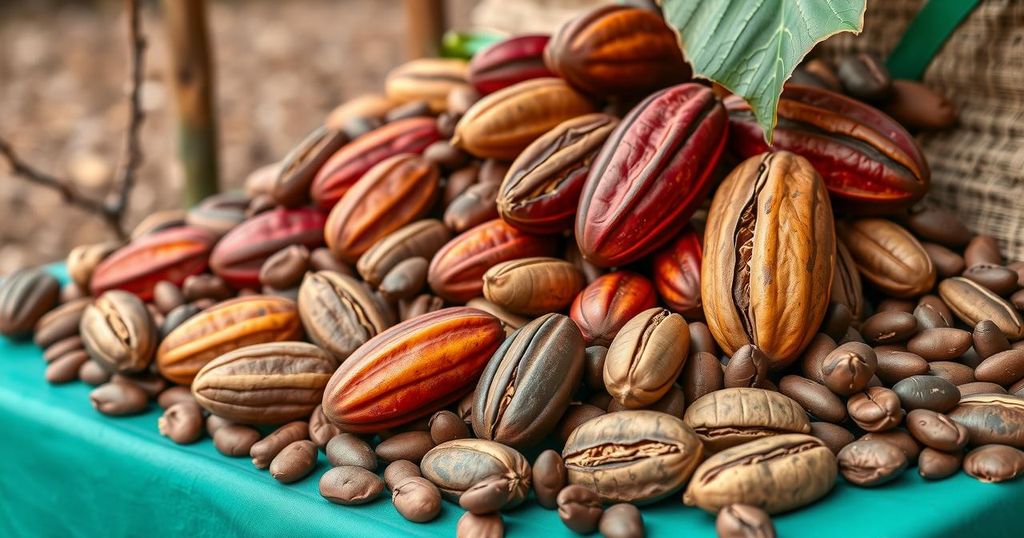Cocoa prices have dipped slightly after record highs, with current prices at $11,936 per metric ton. Meanwhile, sugar prices are rising due to supply issues in Brazil. The cocoa market faces potential production challenges due to dry weather, yet arrivals have increased by 30.1%. Fluctuations in soft commodities highlight the impact of regional climate on markets.
Cocoa prices have experienced a slight decrease after achieving unprecedented highs, with New York cocoa futures now at $11,936 per metric ton. Concurrently, sugar prices have surged due to supply challenges in Brazil, leading to notable fluctuations within the soft commodities market. Noteworthy is the projected slowdown of cocoa port arrivals in Ivory Coast, attributed to dry weather, which poses potential risks to production forecasts for the 2024/25 season. Nevertheless, cocoa arrivals have increased by 30.1% since October 1, indicating a robust supply despite impending challenges. Conversely, London cocoa futures have displayed an upward trend, while sugar prices have risen to 19.74 cents per pound in response to Brazil’s diminishing sugar output. This development results from sugar mills ceasing operations for the season, which contributes significantly to market volatility amid short-covering support. It is also pertinent to mention that March white sugar futures climbed to $515.70 per ton, revealing an overall upward trajectory. In contrast, Arabica coffee futures fell to $3.1645 per pound, halted by the prevailing drought conditions in Brazil, which raises concerns about coffee production. Similarly, robusta coffee futures declined to $4,958 per ton, mirroring the broader soft commodities trends.
The recent fluctuations in cocoa and sugar prices underscore the impact of weather on global agricultural markets. Cocoa, essential in chocolate production, and sugar, a key sweetener, are highly susceptible to environmental changes. Historically, the commodity markets have been influenced by weather patterns, particularly in regions that are crucial for these crops, such as West Africa for cocoa and Brazil for sugar. Understanding these dynamics is imperative for investors and stakeholders in the agricultural sector, reflecting the enhanced vulnerability of supply chains to climate change.
In summary, the cocoa market has faced a mild decline following record-high prices, influenced by weather-related production forecasts for the upcoming season. While cocoa experiences a downturn, sugar prices are on the rise due to supply limitations in Brazil. The interplay between these commodities illustrates the fragility of agricultural production in the face of climatic changes, emphasizing the necessity for industry participants to remain vigilant about market conditions and trends that may affect their strategies and economic forecasts.
Original Source: finimize.com







